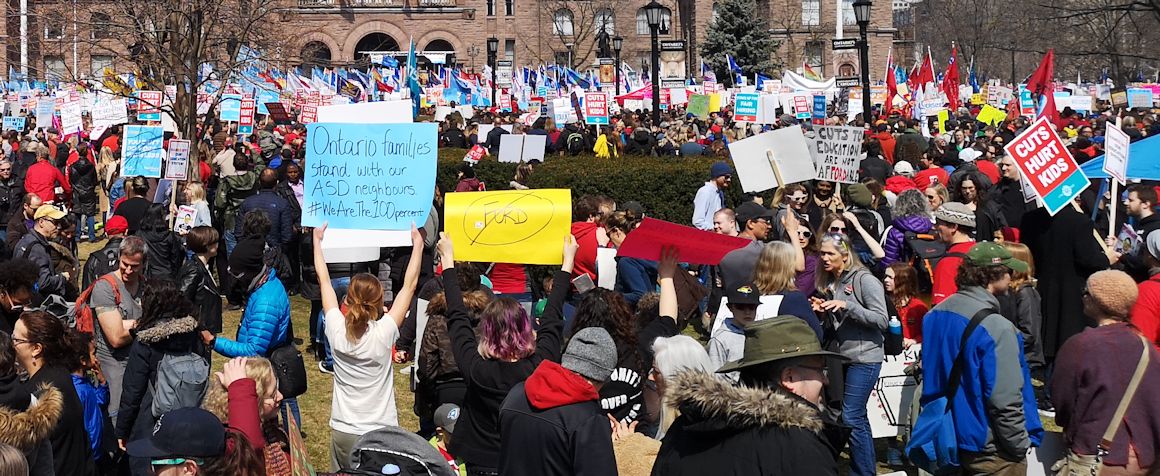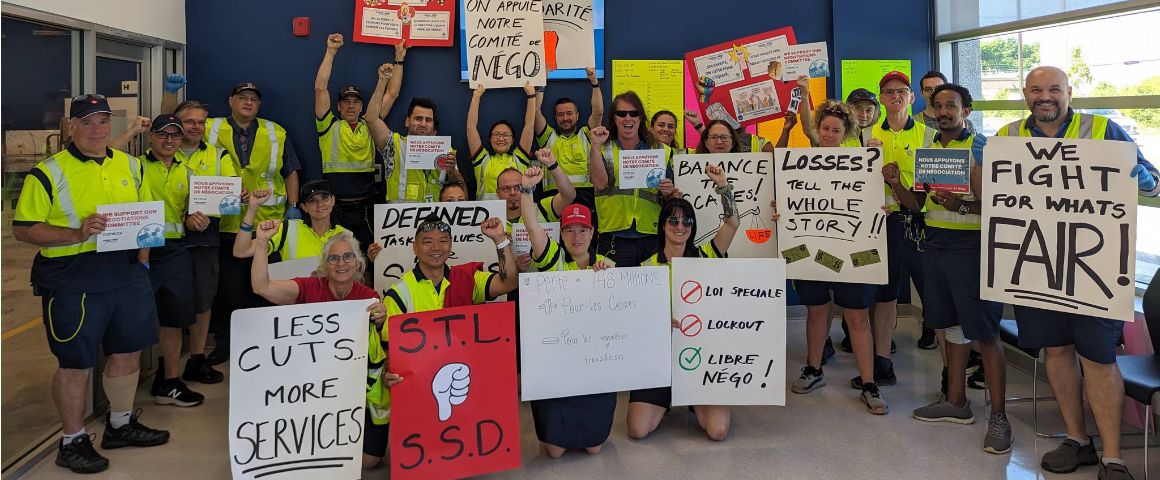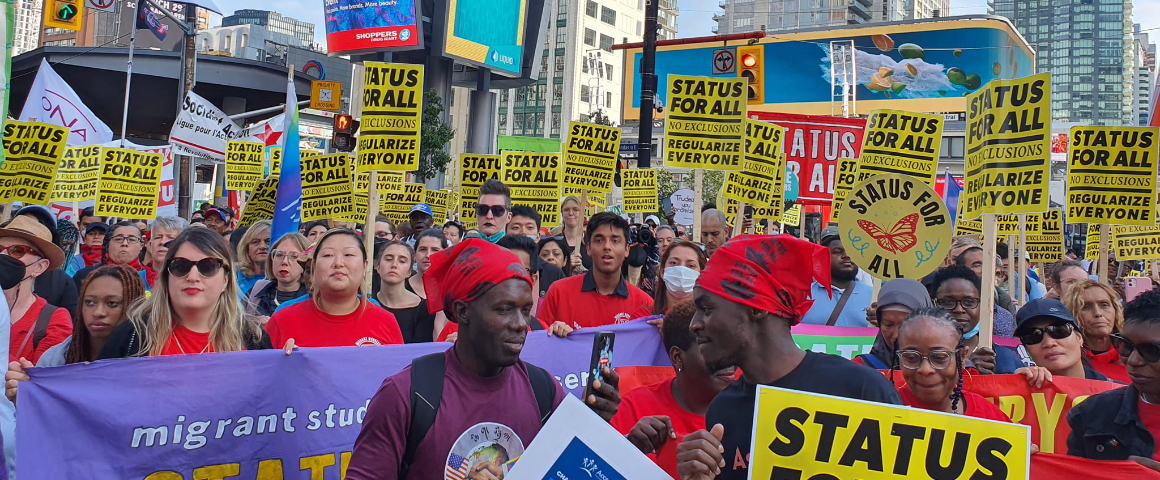From the depths of the attic room where it was hidden from public view during the federal election campaign, Doug Ford’s Conservative government appears to have been backing away from much of its aggressive neoliberal austerity agenda.
Last year, the government was positioning itself for a major attack on the province’s already pitiful social assistance programs. Armed with a handily-revised financial report that showed Ontario’s deficit was larger than reported, and a review of social assistance that could have been penned by Ebenezer Scrooge, then minister Lisa MacLeod to cut $1 billion from Community and Social Services.
Surprise, then, that after a quiet but utterly sweeping cabinet shuffle, the government retreated from many of MacLeod’s planned cuts including the elimination of the Transitional Child Benefit.
The Tories have also blinked in other areas, including the hugely important education sector.
First up were 55,000 education workers represented by the Canadian Union of Public Employees (CUPE). CUPE’s Ontario School Board Council of Unions includes educational assistants, custodians, early childhood educators, office administrators, library workers, tradespeople, instructors, IT specialists, child and youth workers, psychologists, social workers, and speech-language pathologists.
The government has pushed for cuts to services and programs, as well as a 1% cap on wages, pensions and benefits for education workers and teachers. In response, the unions have organized mass outreach campaigns to engage the public in the defense of public education. Parent and community activists have organized regular “walk-ins” at schools – solidarity pickets with teachers and education workers before school starts. The result was a rapid and strong growth in community support for the unions, and a widespread sense of mistrust in the government. Workers, it seems, have a better sense of defending public education than politicians elected to do just that.
Plagued by plummeting popularity, the last straw for Doug Ford may have been the threat of a strike by CUPE. With parent and community support for the union, and with school boards across Ontario declaring that they would close schools in the event of a strike, the Tories seem to have realized that they would be clearly carrying the blame for any disruption.
In the end, while they didn’t beat back the 1% wage cap, CUPE pushed back on most government demands and even won some gains. The union secured 1300 new jobs, maintained the sick leave and short-term leave plans, won an additional holiday (Family Day) for all members, increased training, and new funding for community use of schools.
The CUPE deal forms something of a template for the teachers’ unions, who are in bargaining as of press time. Here, the biggest single issue is perhaps the government’s moves to increase class size, an attack that is felt particularly harshly at the secondary level. Increasing class size directly impacts hiring for teachers, and it also results in drastic cuts to school funding.
So far, the three main teachers’ unions – ETFO, OSSTF and OECTA – have kept pace with one another during negotiations and appear to be maintaining a united demand that the government must remove the proposals to increase class size and remove class size caps in local contracts. The unions will likely be in a strike position around November 20.
Speaking with People’s Voice, a representative of one of the unions said, “this time around, bargaining is more than ever about students. The level of services is incredibly uneven across the province, depending on the school board and what resources it has. At the table, we’re trying to negotiate improved standards in the services and programs offered to students. Services for students shouldn’t depend on your postal code.”




